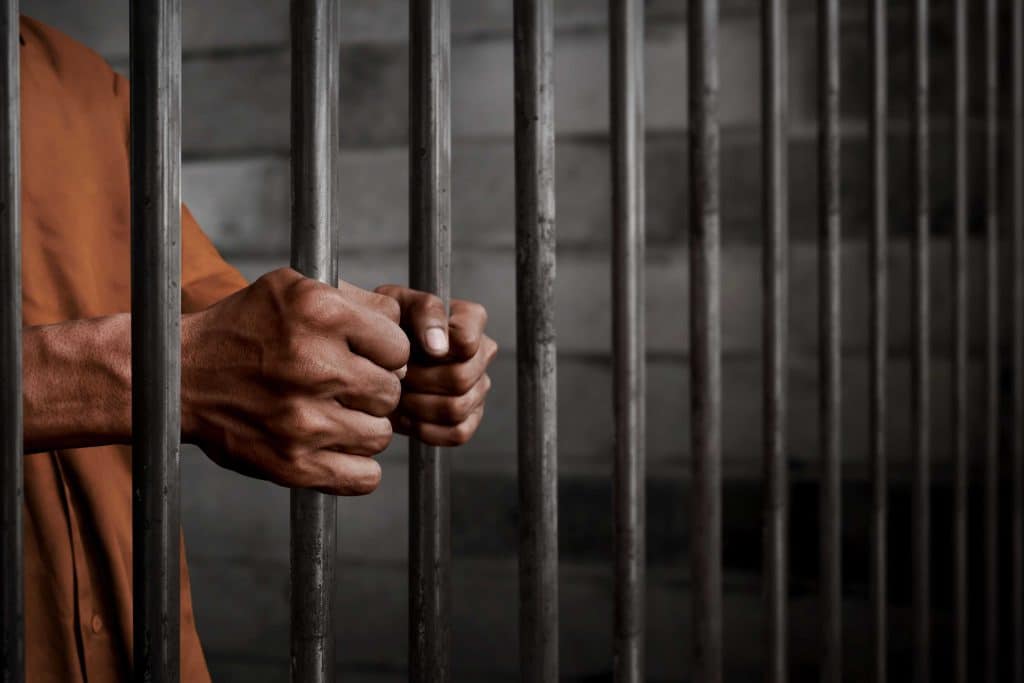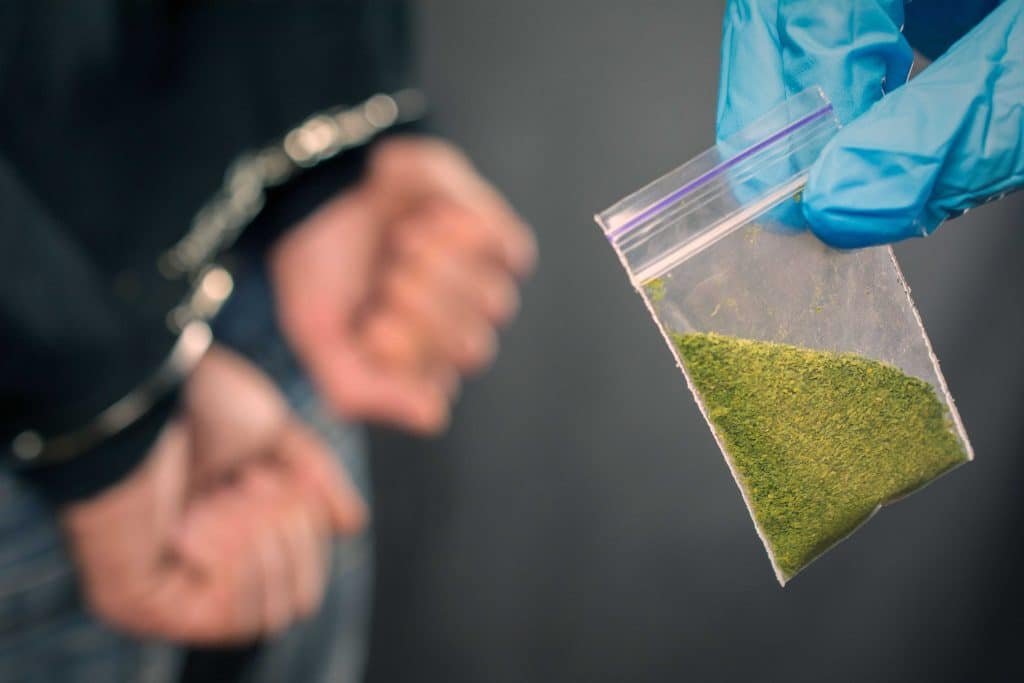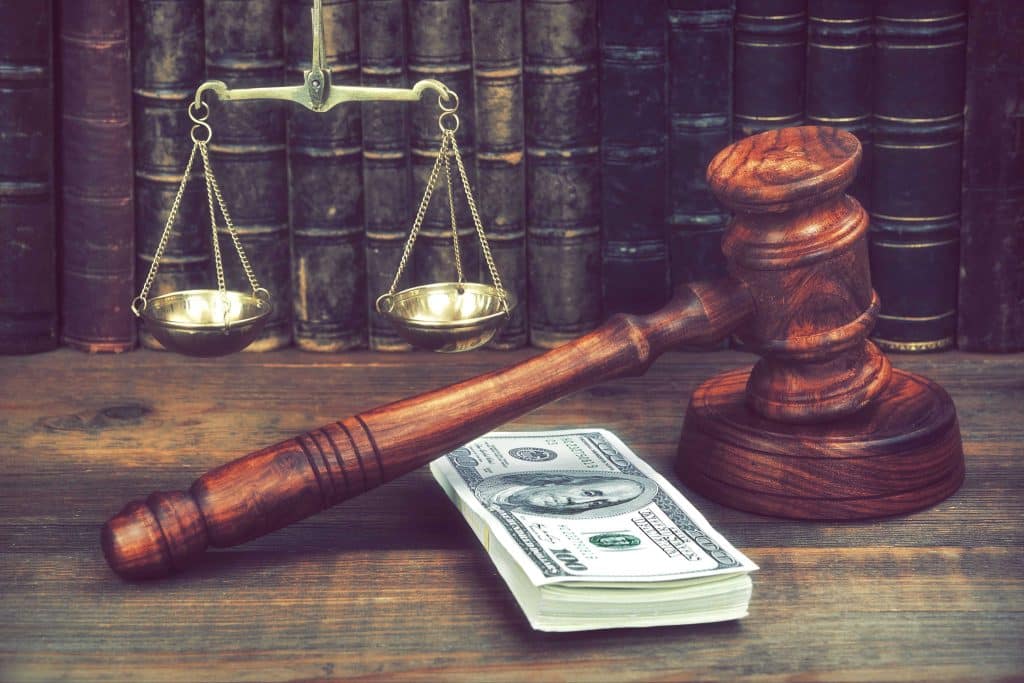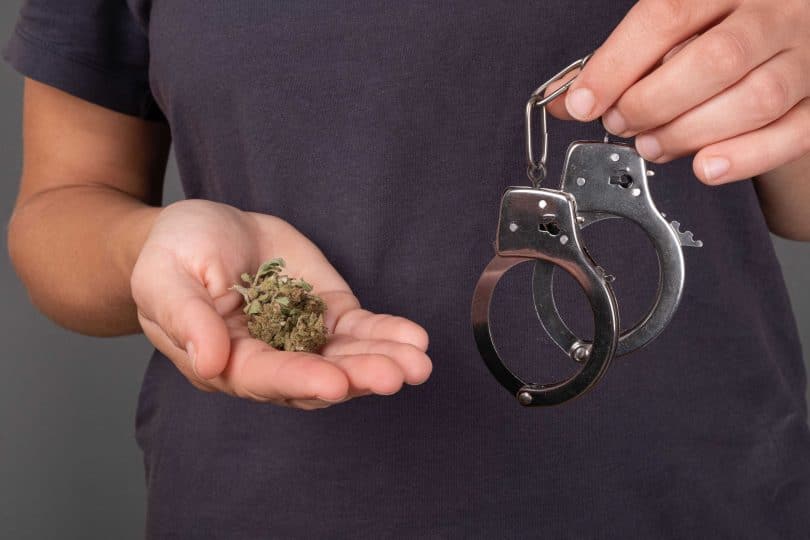President Biden just fulfilled a campaign promise to help those who have been hurt by cannabis laws. He did this by way of a pardon for people with simple possession convictions. This sounds forward-thinking, but it comes with some harsh realities about the world of weed incarceration. Here are five of the saddest things to understand about marijuana arrests and convictions, that still exist in our current climate of growing weed acceptance.
Thanks for joining us. Keep current with the news by subscribing to our Cannadelics Weekly Newsletter, and get yourself prime access to tons of offers on merchandise like marijuana flowers, vapes, edibles, smoking devices, cannabinoid compounds, and more. Pick carefully and enjoy responsibly!
1 – They happen, like, all the time
If you thought 19 states passing recreational legalizations, and around 40 with medical legalizations, means the topic of marijuana arrests is no longer a thing, you’re certainly incorrect. While its true that about half the country live in weed-legal locations, this hasn’t stopped the federal government from going after just about anyone it can. How many arrests does this actually account for?
As per an FBI Uniform Crime Report for 2019, (released in October, 2020), there were 545,602 arrests related to marijuana that year (possession, sales, and manufacturing). In 2019, there were at least 11 legalized states, meaning at the time that over a half million people were getting arrested for cannabis, much of the country was already legal. These arrest numbers outnumber all other classes of drug arrests, outside of drunk driving. Meaning meth arrests, opioid arrests, and cocaine arrests, are all fewer than cannabis arrests.
As far as 2020 statistics, the FBI released data that shows about 350,150 marijuana arrests, with less information on how many were for simple possession. This number is smaller, but hardly small enough considering how much of the country was weed-legal at the time. In terms of 2021 reporting, the FBI’s updated and incomprehensible crime statistics reporting, has made it impossible to know any hard numbers. This is odd, as it indicates the US can’t, or won’t, tally these arrests accurately. Which makes it look like the US government is trying not to keep track of who it arrests for weed, anymore.

Maybe a pardon was made, but no policy was updated, meaning no laws changed. And that means arrests will still be made, creating a wild contradiction. And a reason for tons of lawsuits. With 19 legal states, its already insane people still get arrested for weed; and more insane that this will absolutely continue following a pardon. And for that matter, its insane that people in one state, are getting penalized for what others can openly do in another state, in the very same country. States rights sometimes fail.
2 – Sometimes more than violent crime arrests
Not only are marijuana arrests still happening, but they happen more than violent crime arrests, and that’s just sad no matter how you look at it. Even if this isn’t always the case, that any recent year shows this, is a horrible indication about how law enforcement resources are used, and the inanity that a plant with no death toll could rack up more police time, than violence. But for at least 2019, that’s exactly the case.
Remember that number from above? The total marijuana arrests in 2019? It was 545,602. Let’s take a step back for a second, and break some numbers down. That year, there were 10,085,207 federal arrests made altogether. Of those 10,085,207, 495,871 arrests came from violent crimes. On the other hand, 1,558,862 of those arrests were for drugs in general, which accounts for all drug categories (outside of drunk driving). 35% of these drug-related arrests were for cannabis, which equals 545,602.
So 545,602 people were arrested for some kind of cannabis activity, and 495,871 were arrested for violent crimes, including murder. That the numbers are so close in a country with a 2021 approximated murder and assault total of 1,313,200 incidences, is as scary as those perpetrating the violent crimes. Very little in life is as nonsensical as locking people up for smoking a plant that makes them calm and happy and which doesn’t kill anyone; while spending less resources going after those who actually and intentionally hurt other people.
3 – Most are for simple possession (personal use)
Since we’re looking at numerical breakdowns of weed arrests, lets look at another aspect. There are several weed crimes, some that make more sense than others. For example, while many of us still don’t agree that hauling any plant material over a border should be considered trafficking a drug, it makes more sense for a person to get arrested when caught doing this, than it does to arrest a person for hitting a joint.
The thing is, so many of these arrests are for nothing more than the latter. The kind of thing that’s often decriminalized, even in places without a legalization. Simple possession means possession for personal use, without intent to sell. Often a decriminalization comes with a personal use amount, which is the cutoff for other crimes like trafficking or intent to sell. Without a decriminalization or personal use allowance, even half a joint in your pocket, is enough for arrest.

In the 2019 data, simple possession made up way too many of the arrests that went down. So let’s go back again to that year. 10,085,207 total federal arrests. Of those, 1,558,862 were drug arrests. Of those, 545,602 were cannabis arrests. Of those, 92% were for simple possession only, meaning 500,394 arrests. Still more than violent crime that year.
4 – You pay out!
Getting arrested sure messes with a person’s life, and can come with possible jail time. Plus, it often means paying out in the form of fines and defense fees. Some might say these fines are the government’s biggest incentive for making cannabis arrests in the first place, since essentially no one is hurt by the drug, (even THC overdoses don’t result in death).
The government makes money from fines imposed. That’s a given. But so is paying out to defend your position. Sure, you might get a court appointed lawyer, but chances are, the process will still cost money, and for those who prefer more specific representation, this ups the price. It’s also time away from work, time kids need to be watched, and paying for a host of legal fees not incorporated into initial costs. It’s expensive getting caught with drugs.
Weed punishments on a federal level for possession crimes go like this, and include all amounts at all levels: 1st offense – considered a misdemeanor, with up to a year in prison, and $1,000 in fines. 2nd offense – considered a misdemeanor, with 15 days (mandatory minimum) – 2 years in prison, and $2,500 in fines. 3rd offense – considered a misdemeanor or a felony, with 90 days (mandatory minimum) – 3 years in prison, and $5,000 in fines. And this is nothing compared to legal fees, and other costs accrued in the defense process. All of which could’ve been initiated, from less than one gram of weed.
5 – Pardons don’t get money back or pay for wrongful imprisonment
This last point, goes with the point above. Getting arrested for weed costs money, and even if you get exonerated, you don’t get that money back, or restitution for time-served. This is a point which is relevant now, since many people just had their convictions scrubbed clean as part of a widespread pardoning by the White House, for simple cannabis possession sentences.
A widespread pardon of this level not only implies, but comes with the indirect statement, that such an activity by the government is wrong. Yet, even as the government essentially admits wrongdoing (indirectly, of course), it offers no repayment for damages. It might take off a conviction, but what if you lost thousands of dollars because of it? What if you lost your job? Your kids? Your reputation? Those who got screwed over, should be compensated, right?

Fat chance of that. In his speech, Biden specifically said this: “No one should be in jail just for using or possessing marijuana… It’s legal in many states, and criminal records for marijuana possession have led to needless barriers to employment, housing, and educational opportunities. And that’s before you address the racial disparities around who suffers the consequences. While white and Black and brown people use marijuana at similar rates, Black and brown people are arrested, prosecuted, and convicted at disproportionate rates.”
He’s making it sound like it isn’t his own government that perpetrated these crimes on the people; and maybe that’s the idea. He doesn’t take responsibility (on behalf of the government), or offer remission of fines. Which means all that money taken by the government, was taken for something now considered non-justifiable, but which isn’t being given back. The government is offering pardons, while keeping all the spoils.
Conclusion
We all know a bunch of people sit in prison, halfway houses, lose jobs (or can’t get them), and deal with family stress, all related to possession of a plant that drives the appetite and brings on a feeling of chill. We all know it happens, but sometimes, we don’t know how much it happens. Well, now you have a better idea. Keep this in mind as the debate goes on, because as long as the federal government holds weed as illegal, these marijuana arrests will continue, pardon or not.
Welcome readers!! Thanks for making your way to Cannadelics.com; a news site where we work hard to bring you top-notch independent reporting on the cannabis and psychedelics industries. Join us whenever possible to keep current with what’s going on, and subscribe to the Cannadelics Weekly Newsletter, to ensure you never miss a single thing.









